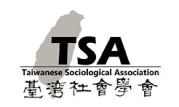【通訊】新人發聲/Malissa Kay Shaw
2020-05-26
文/Malissa Kay Shaw(蕭玫凱;臺北醫學大學醫學人文研究所助理教授)
Dr. Malissa Kay Shaw is a medical sociologist and assistant professor in the Graduate Institute of Humanities in Medicine at Taipei Medical University. Her research sits at the intersections of biotechnologies, reproductive health, and science and technology studies. Before coming to Taiwan in 2017 Dr. Shaw explored couples’ and medical professionals’ experiences of utilizing assisted reproductive technologies in Colombia and the agentic ways that women engage with these technologies as they strive to conceive. This ethnographic study, completed as part of Dr. Shaw’s PhD at the University of Edinburgh, specifically focused on 1) the dynamic ways in which new (potentially controversial) biomedical inventions become accepted and utilized in a context with limited legal regulations, and 2) how women’s embodied experiences of invasive medical procedures are agentic, forming a type of embodied agency that refutes the commonly oversimplified objectifying character of medical interventions.
In Taiwan Dr. Shaw’s research has continued to focus on women’s health, embodiment, and medical interventions. She is currently analyzing data from a qualitative interview study funded by the MOST on women’s experiences of pelvic examinations in Taiwan. Shaw is particularly interested in the contrast between an apparent over-medicalization of pregnancy monitoring and birthing practices in Taiwan compared to an underuse, or under-medicalization, of preventative gynecological screening.
Additionally, Dr. Shaw recently received a three year Einstein Grant from the MOST. Her project, “Dirty Bodies, Dirty Secrets, Dirty Earth: Transforming Restrictive Perceptions of Menstruation and Women’s Lives through Alternative Menstrual Products” concerns the diverse images and meanings surrounding menstrual cups, a relative new device designed to collect menstrual blood in a healthier, more environmentally friendly, and economical way. In her two-part study, Dr. Shaw, will first explore the diverse perceptions and ideologies that the more than 70 (primarily women run) companies producing menstrual cups around the globe have of their product. The second phase will involve a comparative study of the experiences of two menstrual cup companies, one in Taiwan and another in Colombia, and the women who use their products. Broadly speaking this study aims to explore the various messages menstrual cup companies portray and how these messages are positioned within broader concerns for women’ health in the local context; how women perceive these concerns, how they experience using a menstrual cup, and, ultimately, how this use alters their experience of menstruation; and how broader social dynamics are being transformed (in specific contexts) through the production and use of menstrual cups.
To learn more about Dr. Shaw’s research and to read her publications, please visit: http://medhuman.tmu.edu.tw/index_en.php?action=research&cid=2&id=12.
In Taiwan Dr. Shaw’s research has continued to focus on women’s health, embodiment, and medical interventions. She is currently analyzing data from a qualitative interview study funded by the MOST on women’s experiences of pelvic examinations in Taiwan. Shaw is particularly interested in the contrast between an apparent over-medicalization of pregnancy monitoring and birthing practices in Taiwan compared to an underuse, or under-medicalization, of preventative gynecological screening.
Additionally, Dr. Shaw recently received a three year Einstein Grant from the MOST. Her project, “Dirty Bodies, Dirty Secrets, Dirty Earth: Transforming Restrictive Perceptions of Menstruation and Women’s Lives through Alternative Menstrual Products” concerns the diverse images and meanings surrounding menstrual cups, a relative new device designed to collect menstrual blood in a healthier, more environmentally friendly, and economical way. In her two-part study, Dr. Shaw, will first explore the diverse perceptions and ideologies that the more than 70 (primarily women run) companies producing menstrual cups around the globe have of their product. The second phase will involve a comparative study of the experiences of two menstrual cup companies, one in Taiwan and another in Colombia, and the women who use their products. Broadly speaking this study aims to explore the various messages menstrual cup companies portray and how these messages are positioned within broader concerns for women’ health in the local context; how women perceive these concerns, how they experience using a menstrual cup, and, ultimately, how this use alters their experience of menstruation; and how broader social dynamics are being transformed (in specific contexts) through the production and use of menstrual cups.
To learn more about Dr. Shaw’s research and to read her publications, please visit: http://medhuman.tmu.edu.tw/index_en.php?action=research&cid=2&id=12.



